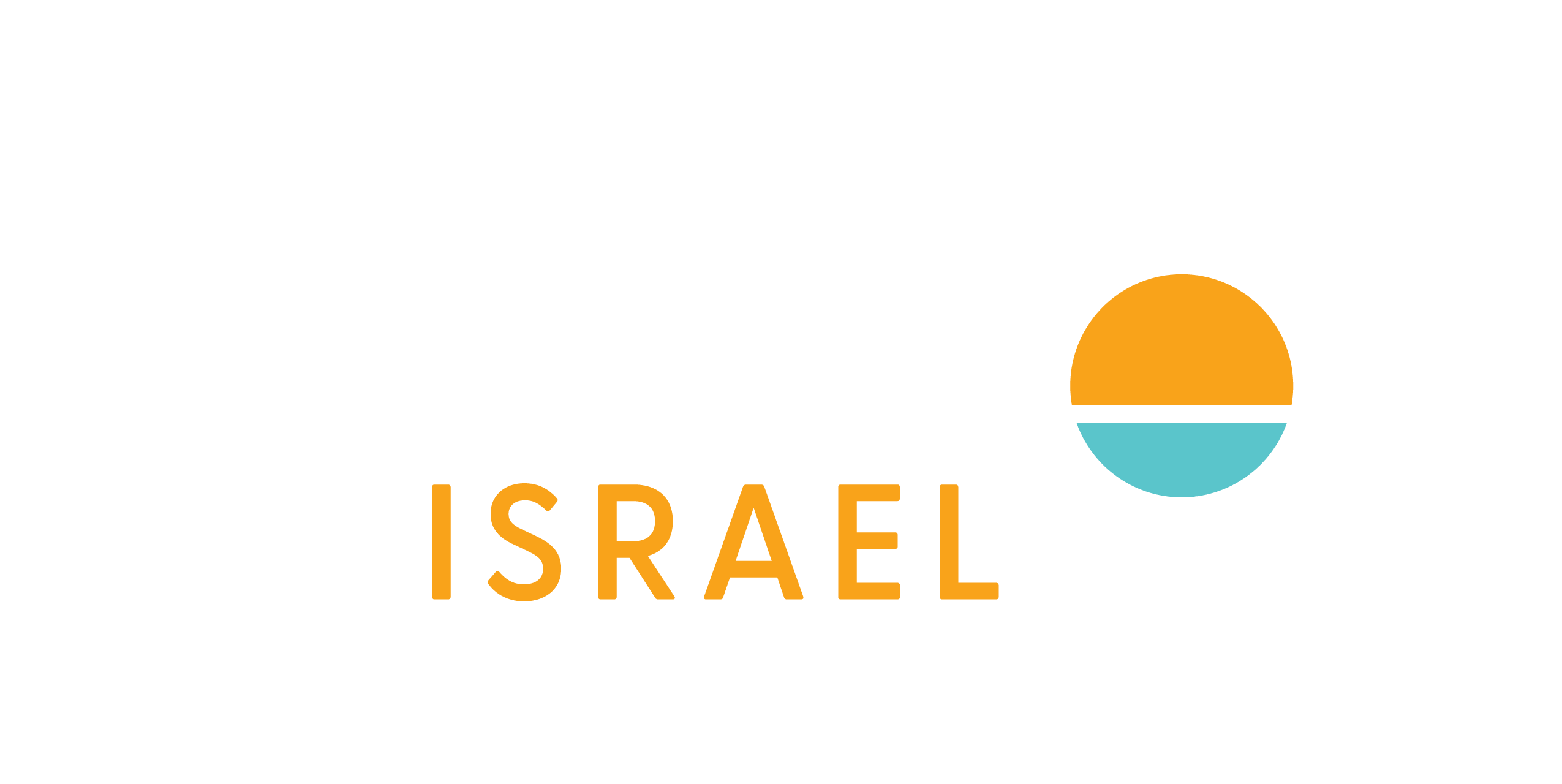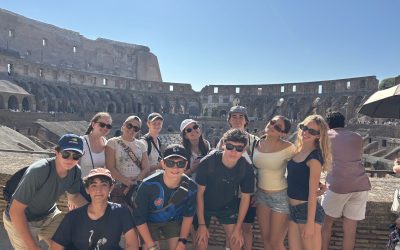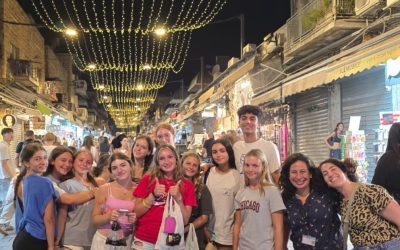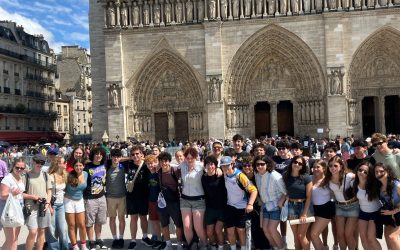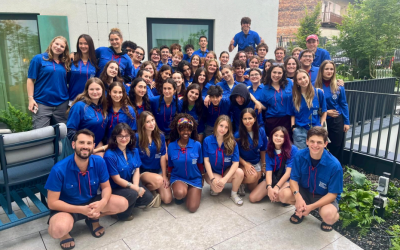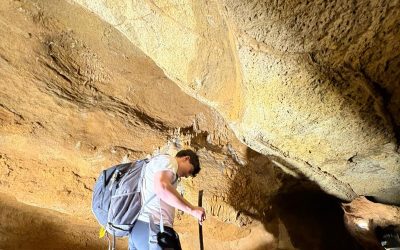By Lisa Friedman, NFTY in Israel chaperone
Experiential education: A methodology in which educators purposefully engage with learners in direct experience and focused reflection to increase knowledge, clarify values, and develop capacity to contribute to community.
There are spaces where the understanding of experiential education is limited to a belief that if a lesson is active, the learning will stick. While it is true that active engagement is better than the passive dumping of knowledge into vessels, there is more to it.
learning will stick. While it is true that active engagement is better than the passive dumping of knowledge into vessels, there is more to it.
Formal education is both valuable and necessary, and there is no question that experiences are enriched when one has prior knowledge. Yet when we can combine formal learning with true experiential education we hit the mark. Such an example of experiential education at its best is NFTY in Israel.
I was fortunate to have spent last week in Eastern Europe with the Camp Harlam L’Dor V’dor trip. What a joy to be with this group of amazing young people and their staff at the beginning of what I know will be a life-changing journey.
The depth of training and skill brought by the tour educators truly elevates the learning in each experience. Yet it is in the collection of individual moments that one can truly come to appreciate the value of experiential education.

We can teach about the ghetto of Terezín, relaying the history of Jewish Europe. Experiential education is standing together in the ghetto’s hidden synagogue singing a familiar niggun.
We can watch Schindler’s List and see the images of Germans prying a mezuzah from the door of a home where Jews have been forcibly removed. Experiential education is standing in such a doorway in the Jewish Quarter of Krakow and connecting the act to the space.
And we can teach the horrors of the Holocaust. We can look at images, read testimony, and try to understand the magnitude of destruction and loss. Experiential education is standing on the soil of Auschwitz-Birkenau, walking the railroad tracks that brought the trains, bearing witness to the atrocities, and doing what our ancestors couldn’t; walking out of the camp.
The journey ahead as this group moves from Europe to Israel will be filled with many more such moments. I am so excited for the authentic, meaningful Jewish experiences which will connect the teens to their story and to our people.
